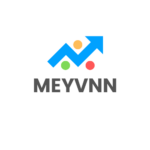As a real estate investor I know how challenging it can be to find and analyze profitable investment opportunities on the go. That’s why I’ve turned to mobile apps that make property investment decisions faster and more convenient than ever. Real estate investment apps have revolutionized how we discover analyze and manage investment properties. Whether you’re a seasoned investor or just starting out these powerful tools provide instant access to property listings market data financial calculations and investment analytics right from your smartphone. I’ll share my top picks for apps that have helped me make smarter investment decisions while saving valuable time and resources.
Best Real Estate Investment Apps

- Real estate investment apps provide easy access to property data, virtual tours, financial analysis, and market intelligence directly from smartphones
- Top platforms like Fundrise and RealtyMogul offer entry points for beginners with minimums ranging from $10-5,000, while premium apps like CrowdStreet cater to accredited investors
- Essential features include bank-level security protocols, automated portfolio management tools, and detailed performance tracking capabilities
- Average annual returns vary significantly between platforms, ranging from 7-18% depending on investment strategy and property types
- Successful app-based investing requires proper setup, regular monitoring, and utilizing educational resources provided by the platforms
How Real Estate Investment Apps Are Transforming Property Investing
Real estate investment apps revolutionize property investing through five key technological innovations:
Data Analytics Integration
Mobile apps connect investors to comprehensive property data including:
- Historical price trends across 150+ markets
- Local demographic insights from census databases
- Rental income estimates based on comparative market analysis
- Property tax records spanning 10+ years
- Neighborhood crime statistics from law enforcement data
Virtual Property Tours
Digital visualization tools enhance property evaluation through:
- 360-degree virtual walkthroughs of properties
- Augmented reality room measurements
- HD photo galleries with zoom capabilities
- Drone footage of exteriors properties
- Street view integration for neighborhood assessment
Automated Financial Analysis
Investment calculation features streamline decision-making by providing:
- Cash flow projections based on 20+ variables
- ROI calculations incorporating maintenance costs
- Mortgage payment estimates from live lending rates
- Tax deduction forecasts using current IRS guidelines
- Investment portfolio performance tracking
Market Intelligence
Real-time market data delivers actionable insights through:
- Price appreciation forecasts using AI algorithms
- Supply demand metrics for specific neighborhoods
- Economic indicator tracking for target markets
- Zoning change alerts affecting property values
- Construction permit monitoring in investment areas
Transaction Management
Digital tools simplify the investment process with:
- E-signature capability for purchase agreements
- Document storage for property records
- Tenant screening integration
- Rental payment processing
- Maintenance request tracking
These technological advancements transform traditional real estate investing into a more accessible data-driven experience. Each feature works together to create a comprehensive investment management system accessible from any mobile device.
Top Real Estate Investment Apps for Beginners
After testing numerous real estate investment platforms, I’ve identified the most user-friendly apps for novice investors. These apps offer intuitive interfaces, educational resources, and lower minimum investment requirements to help beginners build their real estate portfolios.
Fundrise: Best Overall Platform
Fundrise revolutionizes real estate investing with its $10 minimum investment requirement and diversified eREIT portfolios. The app features an automated investment option that allocates funds across multiple properties based on individual goals. Users gain access to quarterly distributions, detailed performance metrics, and a dashboard displaying property-specific updates. The platform maintains a 1% annual management fee while providing institutional-quality real estate investments previously available only to accredited investors.
RealtyMogul: Best for Commercial Properties
RealtyMogul specializes in commercial real estate investments through its two public non-traded REITs: MogulREIT I and MogulREIT II. The platform requires a $5,000 minimum investment and offers thoroughly vetted commercial properties including office buildings, retail centers, and multi-family complexes. Investors receive automated monthly distributions, transparent fee structures, and comprehensive due diligence reports. The app includes interactive property maps, financial modeling tools, and real-time investment performance tracking.
DiversyFund: Best for Long-Term Growth
DiversyFund focuses exclusively on multi-family real estate projects with value-add potential, starting at a $500 minimum investment. The platform eliminates third-party fees by managing properties in-house and reinvesting cash flows into property improvements. The app provides detailed project timelines, renovation updates, and monthly performance reports. Users access educational content including market analysis reports, investment strategy guides, and real estate terminology explanations specifically designed for beginners.
Premium Apps for Experienced Investors
Advanced real estate investment apps cater to seasoned investors seeking institutional-grade opportunities with higher minimum investments, sophisticated analytics tools, and exclusive deal access. These platforms prioritize deal quality, thorough due diligence, and comprehensive investor relations.
CrowdStreet: Best for Accredited Investors
CrowdStreet’s platform connects accredited investors with commercial real estate opportunities through a sophisticated digital marketplace. The app features a $25,000 minimum investment requirement, offering direct access to individual deals in office buildings, multi-family complexes, industrial facilities, and retail centers. Investors receive detailed investment memorandums, financial models, market research reports, and sponsor track records for each opportunity.
Key features include:
- Private deal room access with institutional-quality due diligence materials
- Real-time project updates through an interactive investor dashboard
- Direct communication channels with project sponsors
- Automated K-1 tax document delivery
- Custom portfolio performance tracking tools
EquityMultiple: Best for Institutional Quality Deals
EquityMultiple specializes in connecting investors with pre-vetted commercial real estate investments typically reserved for institutional investors. The platform maintains a $10,000 minimum investment requirement and focuses on middle-market commercial properties. Each investment undergoes a rigorous 24-point due diligence process, with only 5% of reviewed deals making it to the platform.
- Detailed financial modeling with sensitivity analysis
- Quarterly investor reports with asset-level performance metrics
- Multiple investment structures (equity, preferred equity, debt)
- Customizable investment tracking dashboards
- Secondary market liquidity options for select investments
| Platform | Minimum Investment | Average IRR | Deal Access | Investment Types |
|---|---|---|---|---|
| CrowdStreet | $25,000 | 18.5% | 250+ deals annually | Commercial, Multi-family |
| EquityMultiple | $10,000 | 17.4% | 100+ deals annually | Commercial, Debt |
Essential Features to Look for in Real Estate Apps
When evaluating real estate investment apps, specific features determine their effectiveness for portfolio management, security, and cost efficiency. Here’s an analysis of critical components that enhance the investment experience.
Security and Verification Systems
Real estate investment apps implement multi-layered security protocols to protect financial transactions and personal data. Theseinclude:

- Two-factor authentication with biometric login options (fingerprint, facial recognition)
- Bank-level SSL encryption for data transmission
- SOC 2 Type II compliance certification
- FDIC-insured cash holdings up to $250,000
- Regular third-party security audits
- Identity verification through government-issued ID scanning
Investment Minimums and Fees
Investment apps structure their fee systems based on investment types and account levels:
| Fee Type | Typical Range | Common Charges |
|---|---|---|
| Management Fee | 0.5% – 2.5% | Annual asset management |
| Platform Fee | 0.15% – 1% | Technology and service costs |
| Minimum Investment | $10 – $25,000 | Initial investment requirement |
| Early Withdrawal | 1% – 3% | Redemption penalties |
- Real-time portfolio valuation tracking
- Automated investment rebalancing options
- Custom investment goal setting with progress tracking
- Interactive charts displaying asset performance metrics
- Dividend reinvestment programs (DRIP)
- Tax document generation (1099-DIV, K-1 forms)
- Portfolio diversification analytics
- Customizable investment alerts based on performance thresholds
Comparing Returns Across Different Platforms
Real estate investment apps deliver varying returns based on their investment strategies, property types, and market focus. Here’s a detailed comparison of historical returns across major platforms:
| Platform | Average Annual Return (2018-2023) | Minimum Hold Period | Distribution Frequency |
|---|---|---|---|
| Fundrise | 7.31% – 12.42% | 5 years | Quarterly |
| RealtyMogul | 6.95% – 11.27% | 3-7 years | Monthly |
| DiversyFund | 8.50% – 13.20% | 5 years | Upon Exit |
| CrowdStreet | 11.50% – 18.30% | 2-5 years | Monthly/Quarterly |
| EquityMultiple | 9.20% – 15.40% | 1-3 years | Monthly |
Return Calculation Methods
Each platform uses specific metrics to calculate returns:
-
Internal Rate of Return (IRR)
- Measures time-weighted returns
- Accounts for cash flow timing
- Includes property appreciation
-
Cash-on-Cash Return
- Tracks ongoing dividend payments
- Excludes property value changes
- Focuses on rental income distribution
Risk-Adjusted Performance
Investment risks vary by platform type:
-
eREIT Platforms
- Lower volatility
- Diversified property portfolios
- Income-focused returns
-
Direct Investment Platforms
- Higher potential returns
- Individual property exposure
- Value-add opportunities
Distribution Structures
Return distribution methods impact investor cash flow:
-
Regular Distributions
- Monthly payment schedules
- Automated deposit systems
- Predictable income streams
- Property sale proceeds
- Refinancing distributions
- Special situation payouts
These performance metrics provide a framework for comparing investment opportunities across different real estate platforms while accounting for risk levels, investment horizons, and distribution preferences.
How to Get Started With Real Estate Investment Apps
- Download and Install
- Select an app matching your investment budget
- Complete the registration process with valid ID
- Link your bank account for secure transactions
- Enable biometric authentication for added security
- Complete Your Investment Profile
- Input your investment goals
- Specify risk tolerance levels
- Set your preferred investment timeline
- Define monthly contribution targets
- Explore Educational Resources
- Watch platform tutorials
- Read investment guides
- Study market analysis reports
- Access property valuation tools
- Start Small and Diversify
- Begin with minimum investment amounts
- Split investments across multiple properties
- Mix different property types
- Distribute across geographic locations
- Monitor and Track Performance
- Review monthly income statements
- Track property appreciation rates
- Analyze occupancy rates
- Monitor maintenance expenses
- Set Up Automated Features
- Configure automatic investments
- Schedule recurring contributions
- Enable dividend reinvestment
- Set performance alerts
- Connect With Support Resources
- Join investor communities
- Participate in Q&A sessions
- Access customer service channels
- Schedule consultation calls
- Document Management Setup
- Organize investment documents
- Store tax records
- Save property reports
- Maintain transaction histories
This structured approach creates a solid foundation for using real estate investment apps effectively. Each step builds upon the previous one, establishing a systematic process for managing digital real estate investments. Real estate investment apps have truly transformed how I approach property investing. They’ve made it possible to research analyze and manage investments right from my smartphone. These powerful tools level the playing field between individual investors and large institutions. I’ve found that whether you’re just starting out or managing a large portfolio there’s an app that fits your needs. The key is choosing one that aligns with your investment goals risk tolerance and available capital. Technology continues to evolve making real estate investing more accessible than ever. By leveraging these apps you’ll have professional-grade tools and data at your fingertips. The future of real estate investing is mobile and it’s already here.



